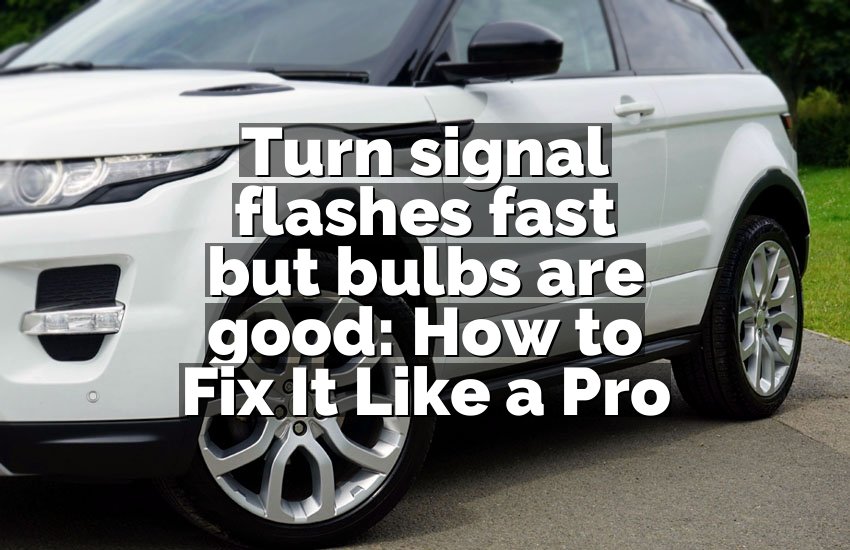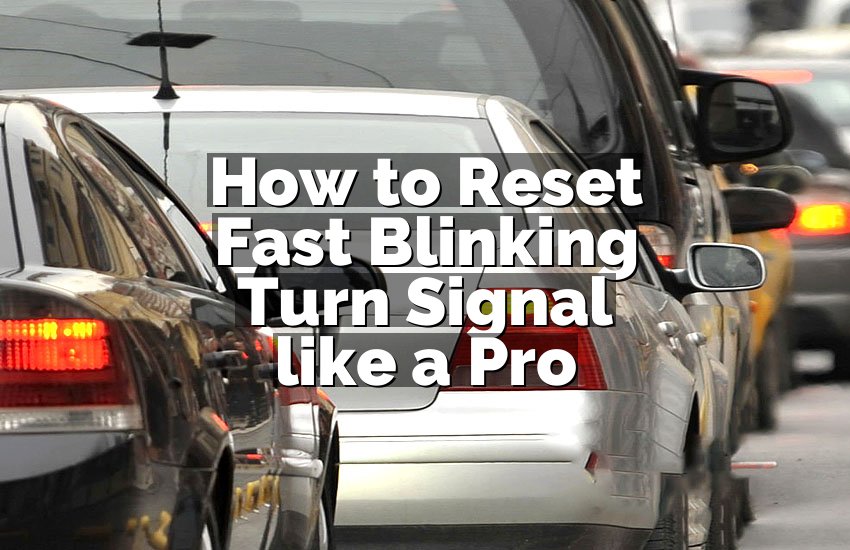If your check engine light is flashing and your car is shaking, it is most likely due to a serious engine misfire. To fix this issue, you should immediately stop driving your car, as continued driving can cause further damage to the engine and other components.
Contact a professional mechanic to diagnose and repair the problem. Ignoring a flashing check engine light can lead to more expensive repairs in the future. Introducing a flashing check engine light and car shaking can be an alarming experience for any driver.
These symptoms are often indicative of a significant engine misfire, which requires immediate attention to prevent further damage. We will explore the causes behind a flashing check engine light and car shaking, as well as discuss the necessary fixes to resolve the issue safely and effectively. It is crucial to address this problem promptly, as ignoring it can lead to more severe engine complications and costly repairs.
What Does A Flashing Check Engine Light Indicate?
Welcome to our blog post on “Check Engine Light Flashing And Car Shaking: Causes And Fixes”. One of the most dreaded moments for car owners is when the check engine light starts flashing. It is an indication that something is seriously wrong with your vehicle and immediate attention is required. In this section, we will explore what a flashing check engine light indicates and discuss the common reasons behind it.
Common Reasons For A Flashing Check Engine Light
There are several potential reasons for a flashing check engine light. It is important to note that the specific cause can vary depending on the make and model of your vehicle. However, here are some common reasons why your check engine light may start flashing:
- Ignition system problems, such as a misfire or faulty spark plugs. These issues can cause the engine to shake and trigger the flashing check engine light.
- Fuel system issues, such as a clogged fuel injector or a failing fuel pump. When the fuel mixture is incorrect, the engine can misfire, leading to a flashing check engine light.
- Exhaust system problems, including a malfunctioning oxygen sensor or a damaged catalytic converter. These issues can affect the engine’s performance and trigger the check engine light.
- Issues with the emission control system, such as a faulty EGR valve or a malfunctioning evaporative emissions control system. These problems can cause the engine to run poorly and result in a flashing check engine light.
Potential Damages Caused By Ignoring A Flashing Check Engine Light
Ignoring a flashing check engine light and continuing to drive your car can have serious consequences. It is crucial to address the underlying issue promptly to avoid further damages. Here are some potential damages that can occur if you neglect a flashing check engine light:
- Engine damage: Ignoring engine problems can lead to severe engine damage over time, resulting in costly repairs or even engine replacement.
- Catalytic converter failure: Ignoring issues with the exhaust system can cause the catalytic converter to overheat and fail. This can lead to a decrease in engine performance and a significant increase in emissions.
- Reduced fuel efficiency: Engine issues can affect fuel combustion, leading to decreased fuel efficiency. Ignoring these problems can result in higher fuel costs in the long run.
- Safety hazards: Engine problems can impact the overall performance of your vehicle, potentially compromising safety. For example, a misfire can cause the car to shake, affecting your control and handling on the road.
Now that you understand what a flashing check engine light indicates and the potential damages associated with ignoring it, let’s move on to the next section where we will discuss the possible fixes for this issue.

Credit: m.youtube.com
Why Is My Car Shaking?
Are you experiencing the unsettling sensation of your car shaking while driving? Understanding the cause behind this issue is crucial for addressing it effectively. ‘Why is My Car Shaking?’ delves into the possible reasons for your car’s unsettling tremors, informing you about signs of serious issues and potential fixes.
Possible Causes Of Car Shaking
Check Engine Light Flashing And Car Shaking: Possible Connections
When your check engine light starts flashing, it’s often accompanied by an unsettling experience: your car begins to shake. These two symptoms might seem unrelated, but in reality, they can be connected. Understanding the potential connections between a flashing check engine light and car shaking can help you diagnose and resolve the issue more effectively.
Shared Causes Of A Flashing Check Engine Light And Car Shaking
Several mechanical and electrical problems can lead to both a flashing check engine light and car shaking. Let’s explore some of the common causes:
- Faulty ignition system components, such as spark plugs or ignition coils, can cause misfires in the engine. These misfires disrupt the smooth running of the engine and can lead to both the flashing check engine light and car shaking.
- A clogged fuel injector can disrupt the proper fuel-air mixture required for efficient combustion in the engine cylinders. This imbalance can result in engine misfires, triggering the check engine light to flash and causing the car to shake.
- A malfunctioning oxygen sensor can impact the air-fuel ratio in your engine, leading to misfires and engine instability. This can activate the check engine light and contribute to the shaking sensation in your car.
How A Flashing Check Engine Light Can Lead To Car Shaking
A flashing check engine light is usually a sign of a severe problem within your vehicle’s engine system. Ignoring this warning can lead to further complications, including car shaking. Here’s how:
When the check engine light flashes, it indicates an active misfire in one or more cylinders of the engine. This means that fuel is not being burned efficiently, leading to a loss of power and an uneven running engine. As a result, your car may begin to shake or vibrate, particularly when idling or accelerating.
The shaking sensation occurs as the engine struggles to maintain a smooth rotation due to the misfires. The engine’s internal balance is disturbed, translating into noticeable vibrations felt throughout the vehicle. Addressing the underlying issue causing the check engine light to flash is crucial to restore engine performance and eliminate the associated car shaking.
It’s essential to note that a flashing check engine light should never be ignored. Continuing to drive your vehicle with this warning can exacerbate the problem and potentially lead to more significant damage or even a complete engine failure. As soon as you notice a flashing check engine light and car shaking, it’s recommended to consult a professional mechanic for a comprehensive diagnosis and appropriate repairs.

Credit: www.clublexus.com
Fixes For A Flashing Check Engine Light And Car Shaking
If you notice that your check engine light is flashing and your car is shaking, it’s important to address the issue as soon as possible. Ignoring these warning signs can cause further damage to your vehicle and potentially lead to costly repairs. In this section, we will discuss immediate steps you should take, do-it-yourself fixes for common issues, and when it’s time to seek professional help.
Immediate Steps To Take
If your check engine light is flashing and your car is shaking, here are the immediate steps you should take:
- Pull over in a safe location as soon as it is safe to do so.
- Turn off your engine and allow it to cool down for a few minutes.
- Check your vehicle’s owner’s manual for any specific instructions or warnings related to a flashing check engine light.
- Inspect your vehicle for any visible signs of damage or leakage.
- Ensure that your fuel cap is securely tightened.
- If you have a diagnostic code reader, plug it into your vehicle’s OBD-II port to retrieve the trouble codes. Note down the codes for further reference.
Do-it-yourself Fixes For Common Issues
In some cases, you may be able to resolve the issue causing the flashing check engine light and car shaking on your own. Here are a few common issues and possible fixes that you can try:
| Issue | Possible Fix |
|---|---|
| Loose or damaged sparkplug wires | Check and tighten or replace the wires as necessary. |
| Clogged fuel injector | Use a fuel injector cleaner additive or have a professional perform a fuel system cleaning. |
| Ignition coil failure | Replace the faulty ignition coil. |
| Faulty oxygen sensor | Replace the malfunctioning oxygen sensor. |
| Vacuum leak | Inspect the vacuum lines for any cracks or leaks and replace as necessary. |
When To Seek Professional Help
If the flashing check engine light and car shaking persists after taking immediate steps and attempting the possible DIY fixes, it’s time to seek professional help. A qualified mechanic or technician will have the necessary tools and expertise to diagnose and repair more complex issues that may be causing the problem. Additionally, they can access more advanced diagnostic equipment to provide an accurate diagnosis and efficient repair solution.
Preventing Future Incidences Of Flashing Check Engine Light And Car Shaking
Preventing future incidences of flashing check engine light and car shaking is essential to maintain the health and performance of your vehicle. By taking proactive steps and following a regular maintenance routine, you can minimize the likelihood of encountering these issues. Here are some important factors to consider in order to prevent future instances of a flashing check engine light and car shaking.
Regular Car Maintenance And Inspections
Regular car maintenance and inspections are vital in ensuring the proper functioning of your vehicle. Through consistent checks and upkeep, you can identify potential issues early on and address them before they escalate into significant problems. Timely inspections can help in preventing the occurrence of flashing check engine light and car shaking.
Common Maintenance Practices To Follow
When it comes to preventing future incidences of flashing check engine light and car shaking, there are several common maintenance practices that should be followed. By adhering to these practices, you can keep your vehicle in optimal condition and minimize the risk of encountering these issues.
Tips For Dealing With A Flashing Check Engine Light And Car Shaking
When your check engine light starts flashing and your car begins to shake, it can be a nerve-wracking experience. However, it’s important to stay calm and focused while driving, ensuring your safety and the safety of others on the road. Taking a few precautionary measures can help you navigate this situation effectively.
Keeping Calm And Focused While Driving
It’s natural to feel worried or anxious when your check engine light starts flashing and your car starts shaking. However, staying calm is crucial to ensure a safe driving experience. Here are a few tips to help you keep your cool:
- Take deep breaths and try to relax. Panicking won’t help in this situation.
- Focus on maintaining a steady speed and stay in your lane. Avoid sudden braking or swerving.
- Avoid distractions such as loud music or engaging in lengthy conversations. Keep your attention on the road.
- If possible, find a safe place to pull over and park your car. This will allow you to assess the situation without endangering yourself or others.
Safety Precautions To Take
When your check engine light is flashing and your car is shaking, it’s important to prioritize safety. Here are some steps to follow:
- 1. Turn Off Hazard Lights: If you have turned on your hazard lights, turn them off to avoid confusing other drivers on the road.
- 2. Avoid Sudden Acceleration: Resist the urge to speed up in an attempt to reach your destination quickly. This can exacerbate the issue and put you at risk.
- 3. Call for Assistance: If you’re unsure about the severity of the problem or don’t have the knowledge to fix it yourself, it’s best to call for professional help. A certified mechanic will be able to diagnose and fix the issue efficiently.
- 4. Don’t Ignore the Issue: Even if the shaking stops and the check engine light stops flashing, it’s still essential to get your vehicle checked. Ignoring the issue can lead to further damage and potentially more costly repairs in the long run.
Remember, the flashing check engine light and car shaking indicate a significant problem with your vehicle. By staying calm, taking safety precautions, and seeking professional help, you can address the issue promptly and ensure your safety on the road.

Credit: www.wikihow.com
Conclusion
A flashing check engine light and car shaking can be caused by various issues such as faulty spark plugs, fuel system problems, or engine misfire. It’s crucial to address these problems promptly to avoid further damage. Regular maintenance and prompt diagnosis are keys to keeping your car running smoothly.
Trust a qualified mechanic for accurate assessment and reliable fixes.


